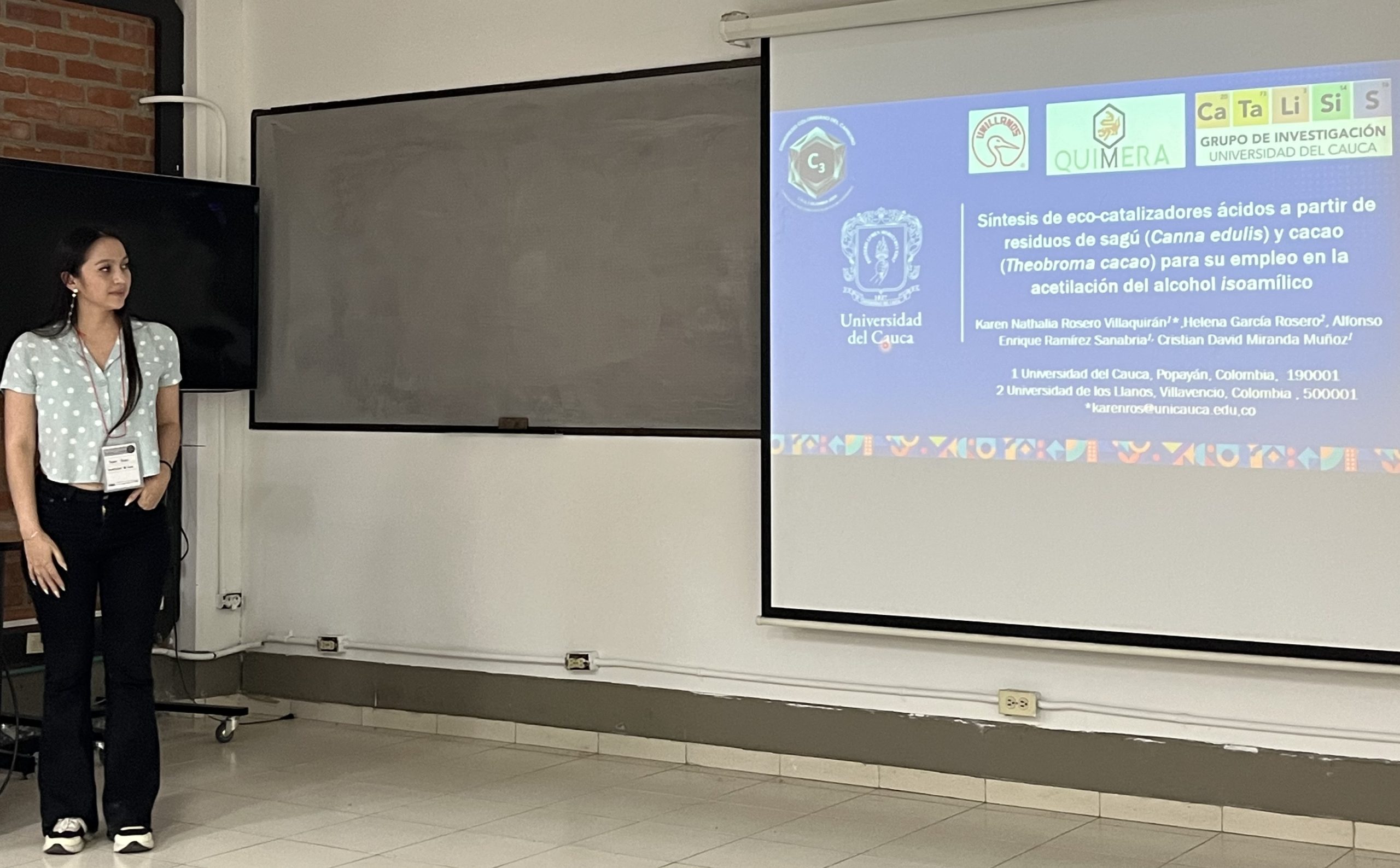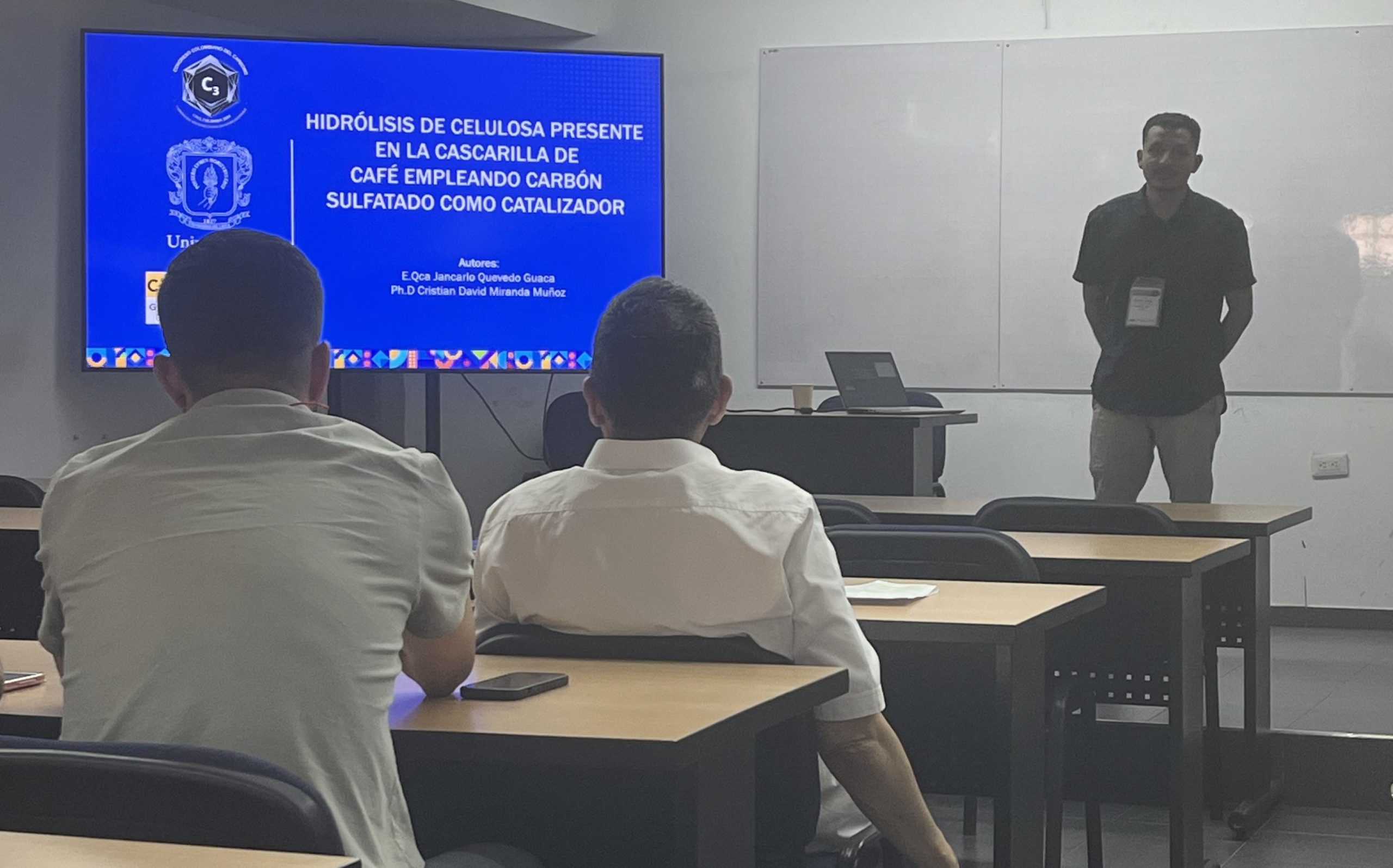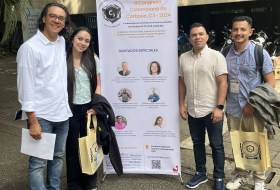News
Unicauca students and their research on carbon uses and emission reduction
The work of University of Cauca Chemistry program students Karen Rosero and Jeancarlo Quevedo, along with professors Cristian Miranda and Alfonso Ramírez, was part of the 70 research projects presented at the II Colombian Carbon Conference C3, held from November 20 to 22 at the University of Valle in Cali, Colombia. These works demonstrated how carbon connects the world with a sustainable future.
The Research Group in Catalysis, part of the Department of Chemistry in the Faculty of Natural, Exact, and Educational Sciences at the University of Cauca, participated in the academic agenda of the conference. The event brought together researchers, specialists, and industry leaders to exchange advancements in research and development (R&D) related to carbon materials, industrial applications of carbon, and emissions reduction.

During the event, the professors and students from Unicauca presented their research as follows:
“Synthesis of Acid Eco-Catalysts from Sago and Cocoa for Use in the Acetylation of Isoamyl Alcohol,” presented by Karen Rosero, a Chemistry student.
“Hydrolysis of Cellulose in Coffee Husk Using Sulfated Carbon as an Eco-Catalyst,” presented by Jeancarlo Quevedo, a Chemistry student.

The students received academic direction and support from professors Cristian Miranda and Alfonso Ramírez.
The II Colombian Carbon Conference C3 featured international and national plenary lectures, as well as the presentation of over 70 research projects showcasing how carbon connects the world to a sustainable future.
The Research Group in Catalysis, consisting of students and alumni from Chemistry, Environmental Engineering, Agroindustrial Engineering, and Physics Engineering, has been recognized in Category A by MinCiencias in its most recent update of group classification. The group is a leading reference due to the quality of its research, which now includes the use of Artificial Intelligence tools to explore new catalytic pathways that improve reaction conditions for the catalysts being developed. Additionally, they are at the forefront of preparing catalytic systems designed to leave the least carbon footprint and are also involved in the valorization of industrial waste, making a positive impact on environmental aspects that Chemistry, through Catalysis, can address.
Writing: Communications Management Center


